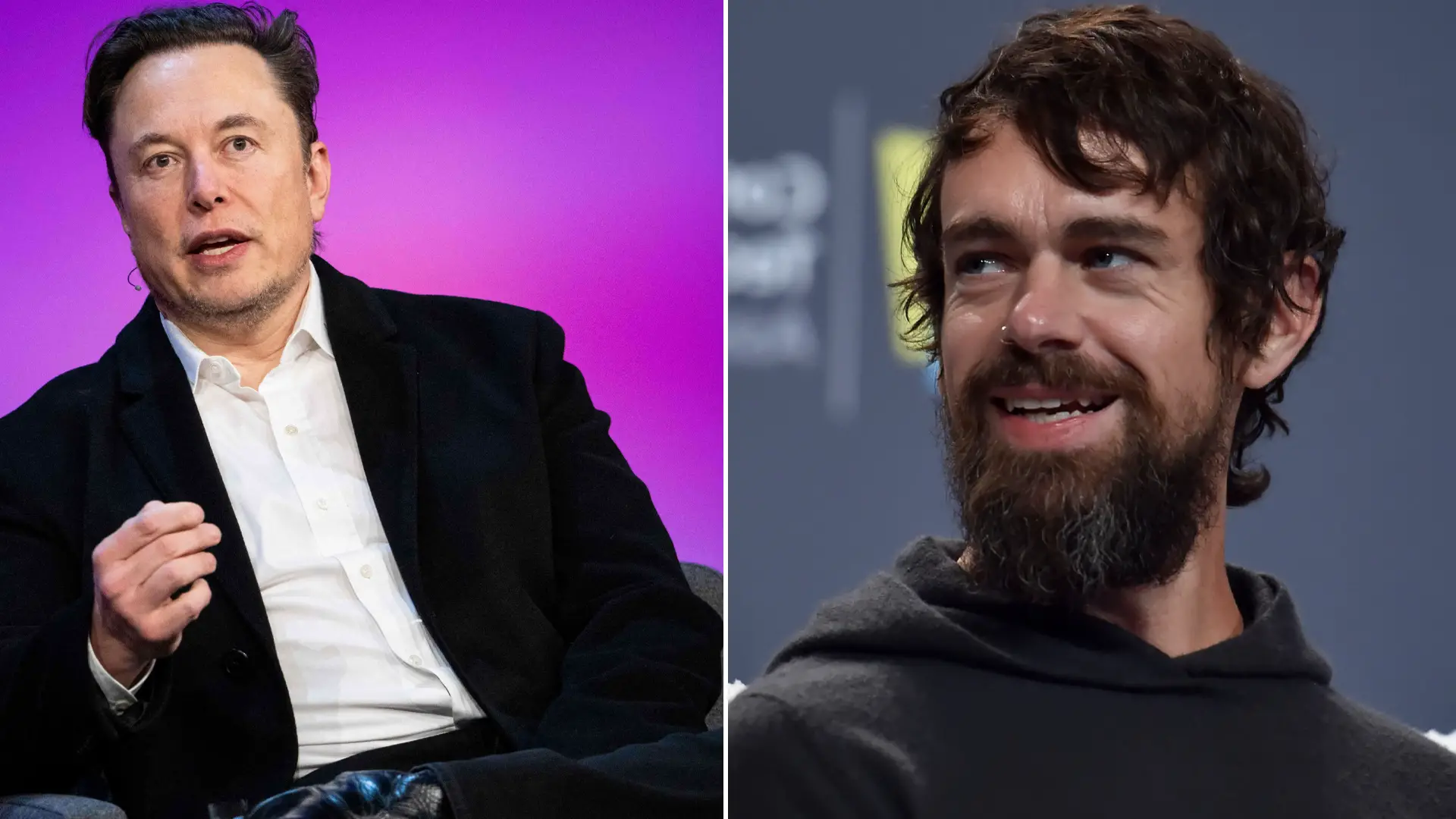In a plot twist that could be straight from a political thriller, Twitter head Elon Musk and the platform’s co-founder Jack Dorsey have formed an audacious alliance. The tech titans have set their sights on the formidable trifecta of the U.S. intelligence services – the Central Intelligence Agency (CIA), the National Security Agency (NSA), and the Federal Bureau of Investigation (FBI). Their goal: to challenge the power, structure, and operations of these intelligence behemoths.
This daring move comes as both figures grapple with the complexities of managing social media platforms, which often collide with the interests and operations of intelligence agencies. The announcement came unexpectedly in the form of a cryptic tweet by Dorsey on a Tuesday.
The former Twitter CEO, known for his occasional enigmatic posts, shared a message that said, “Splinter the CIA, NSA, and FBI into a thousand pieces and scatter them into the winds.” The tweet, rather intriguingly, was accompanied by a link to a portrait of former U.S. President John F. Kennedy.
This puzzling tweet raised eyebrows worldwide and spurred speculation. Was this a call for the dismantling of the U.S. intelligence agencies? Or perhaps a demand for greater transparency and accountability within these organizations?
Splinter the CIA, NSA, and FBI into a thousand pieces and scatter them into the winds. https://t.co/mDRYX1LFld
— jack (@jack) May 24, 2023
As the leaders of one of the world’s largest social media platforms, both Musk and Dorsey have had their fair share of run-ins with U.S. intelligence agencies. Social media companies often find themselves in a delicate balancing act. They strive to respect user privacy and free speech, while also cooperating with law enforcement and intelligence agencies to prevent harm and protect national security.
Musk and Dorsey’s decision to challenge the U.S. intelligence community signals a new level of friction between tech leaders and government agencies. Their stance suggests a growing frustration with the perceived overreach of these organizations and their impact on digital privacy and freedom.
Despite their different personalities and leadership styles, Musk and Dorsey share a common belief that intelligence agencies like the CIA, NSA, and FBI require significant reform. They argue that these institutions wield substantial power with limited checks and balances, leading to potential infringements on citizens’ rights.
Their partnership could potentially catalyze a significant conversation about the role and operations of intelligence agencies in a digital era. They aim to leverage their influence and the power of social media to prompt public debate and demand accountability and transparency in intelligence operations.
Dorsey and Musk’s audacious plan has provoked reactions ranging from disbelief to enthusiasm. Critics argue that their proposal is idealistic and overlooks the crucial role these agencies play in ensuring national security. They contend that Dorsey and Musk, while successful in their fields, lack the experience and understanding of the intricacies and necessities of intelligence work.
However, supporters argue that the plan, while bold, is a necessary step in sparking debate about the powers and limitations of intelligence agencies. They assert that tech leaders, given their understanding of digital platforms and data, have a unique perspective on these issues and can offer valuable insights into potential reforms.
Musk and Dorsey’s alliance and their public challenge to U.S. intelligence agencies mark a new chapter in the complex relationship between tech companies and government organizations. The outcome of their efforts remains uncertain, but what is clear is their intention to shake up the status quo. They are prompting a critical conversation about the balance between national security and individual privacy in an increasingly digital world.
While the dust settles on this audacious move, one thing is certain: the dynamics between social media platforms and intelligence agencies are set for a significant overhaul.
The conflict isn’t just about two tech industry giants challenging U.S. intelligence services; it’s symbolic of the broader tensions between Silicon Valley and Washington D.C. It represents a manifestation of the ongoing debate over the compromise between personal privacy rights and national security imperatives.
Dorsey and Musk’s challenge to the CIA, NSA, and FBI brings into sharp focus the role of social media platforms in our lives. These platforms aren’t just tools for communication and entertainment. They have become influential entities that hold the power to shape conversations on matters of national and international significance.
The provocative action by Musk and Dorsey isn’t without its potential pitfalls. Intelligence agencies argue that their activities, which may seem intrusive, are necessary to safeguard national security. They warn that obstructing their functions could lead to significant security threats going undetected, with potentially severe consequences.
Conversely, privacy advocates have championed Dorsey and Musk’s stand, viewing it as a long-overdue pushback against excessive government surveillance. They argue that such monitoring curtails individual freedom, stifles dissent, and undermines democracy.
As these events unfold, it is clear that Musk and Dorsey’s audacious plan has triggered a significant conversation. The dialogue isn’t just about the intelligence agencies but also about the role of social media platforms in our society, the balance between privacy and security, and the place of these powerful entities in our democratic framework.
In this evolving landscape, all eyes are on Musk and Dorsey. Their defiant stance has undoubtedly disrupted the status quo. The impact of their actions, whether they succeed in their ambitious endeavor or not, will likely be felt across the tech industry and beyond.
As we move forward in this digital age, the discourse triggered by Musk and Dorsey’s alliance brings to light important questions that society must grapple with: What is the role of intelligence agencies in a democratic society? How do we balance national security with personal privacy? And what part do tech companies and social media platforms play in these issues? The dialogue, while uncomfortable for some, is crucial for shaping the future of our increasingly digital world.

